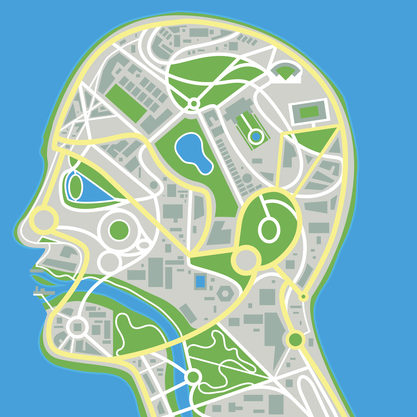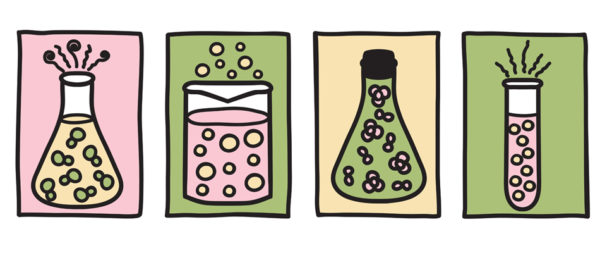Mapping participatory urban governance: A call for contributions
Bertie Russell
 The Jam & Justice project are producing a map of Participatory Urban Governance. Drawing from across the Global South & North, we are looking to produce a collection of inspiring, workable, and actually existing examples of how citizens can be involved in decisions, processes and structures that affect them.
The Jam & Justice project are producing a map of Participatory Urban Governance. Drawing from across the Global South & North, we are looking to produce a collection of inspiring, workable, and actually existing examples of how citizens can be involved in decisions, processes and structures that affect them.
The previous year has witnessed unprecedented political turbulence, with the outcome of the UK’s EU referendum and the US Presidential election widely unpredicted by polls, analysts, commentators and bookmakers alike. Whilst the nuances of these events are complex, what they signify is a widespread frustration with the political status quo. People are increasingly feeling that there is an absence of control over decisions, processes and structures that affect them.
Commonly expressed through a populist politics that pits ‘the people’ against an abstract elite, some groups have sought to harness increased disillusionment with liberal democratic institutions to promote unjust perspectives and policies. Yet these movements generally fail to address the underlying disempowerment and alienation on which they draw, and offer no vision of what more inclusive or just forms of governance could look like. The underpinning desire to have more control over the decisions that affect our lives is emerging as a central political question for our times. Progressive strategies are needed which engage and involve citizens in urban decision-making and governance.
Meanwhile, cities around the world are experimenting with participatory forms of governance that – to differing degrees – aim to really offer citizens an opportunity to shape the decisions that affect them. From the early days of participatory budgeting in Porto Alegre through to the online municipal planning process in Barcelona, there are numerous inspiring examples from around the world of the different forms that participatory governance could take. We are in urgent need of imagining what more participatory urban governance could look like, how we can innovate, what makes it work and how to introduce new and adapted processes.
What is the ‘Map of Participatory Urban Governance’?
 We are looking to produce a collection of inspiring, workable, and actually existing examples of how citizens can be involved in decisions, processes and structures that affect them within city-regions. Whilst some forms of participatory urban governance (such as participatory budgeting) are now well known, we are looking to pull together a breadth of examples from across the Global South and North, exploring what makes them exciting, what they are aiming to achieve, what makes them effective, and how they might contribute to more just outcomes. We are looking to find examples – whether at the scale of the street or city-regional wide – where citizens are empowered in urban governance.
We are looking to produce a collection of inspiring, workable, and actually existing examples of how citizens can be involved in decisions, processes and structures that affect them within city-regions. Whilst some forms of participatory urban governance (such as participatory budgeting) are now well known, we are looking to pull together a breadth of examples from across the Global South and North, exploring what makes them exciting, what they are aiming to achieve, what makes them effective, and how they might contribute to more just outcomes. We are looking to find examples – whether at the scale of the street or city-regional wide – where citizens are empowered in urban governance.
We are broad-minded about what this includes, and want to be led by what actually exists – whether that means citizens shaping the strategic plan for their city through online deliberative platforms, new spaces for discussion and decision-making, citizens juries or assemblies, collaboration between residents and architects in the design of new public infrastructure, or the co-governance of municipal energy companies that bring together technical expertise, political representatives and citizens.
How can I contribute?
We’re looking to crowd-source as many examples as we can – whether historical or contemporary – of participatory urban governance. We’re purposefully keeping the definition of this relatively open at this stage, so as to not close-down or exclude examples that could help change how we think about what it means for people to be included in decisions that affect them. We’re particularly interested in examples that have attempted to empower people that are structurally or systematically excluded, and that have led to more just and equitable outcomes.
We’re only limiting the map to two factors:
- We’re looking for examples focused on aspects of city and/or city-regional governance. Some examples will only apply to a very local area or specific topic. We are interested in those which help us understand the range of practical efforts to achieve more inclusive governance. We would specifically like to identify examples at city-regional or city-wide scales.
- We are interested in examples that go beyond ‘consultation’, in which power, resources or decisions have been shared. There might be many forms this has taken – from citizens’ juries to Town Hall meetings. We’re particularly interested in examples that have attempted to empower people that are structurally or systematically excluded, and that have led to more just and equitable outcomes.
We’re asking people to complete a short form (see attached) which you can find below that outlines the example – where it was, when it happened, what was exciting about it, who was included (were systematically marginalized peoples included?), what problems did it face, what key lesson that could be learned?
This first call has a deadline of 27th February 2017. Contributions and enquiries should be sent to b.russell@sheffield.ac.uk
How will we share our findings?
Our short-term plan is to publish a report of those participatory urban governance initiatives that we find most inspiring and innovative in Spring/Summer 2017. We also hope to produce a map. In times that feel both hopeless and desperate, we hope these resources will show that another world is not only possible, but that it already exists.
Who is leading this?
 This is part of a three-year research project called ‘Jam & Justice’, based in the UK and funded by the Economic and Social Research Council and Mistra Urban Futures. We have created an Action Research Cooperative to co-design and deliver action research projects aimed at developing new ways for citizens to engage in urban decision-making and governance and understanding the principles that underpin successful forms of inclusive urban governance. The Map of Participatory Urban Governance will help us identify what change we want to achieve and how we design and develop our action research projects. We are hoping that this report will provide citizens and receptive policy-makers with a guide to developing new forms of participatory urban governance.
This is part of a three-year research project called ‘Jam & Justice’, based in the UK and funded by the Economic and Social Research Council and Mistra Urban Futures. We have created an Action Research Cooperative to co-design and deliver action research projects aimed at developing new ways for citizens to engage in urban decision-making and governance and understanding the principles that underpin successful forms of inclusive urban governance. The Map of Participatory Urban Governance will help us identify what change we want to achieve and how we design and develop our action research projects. We are hoping that this report will provide citizens and receptive policy-makers with a guide to developing new forms of participatory urban governance.
You can find out more about the project here: http://ontheplatform.org.uk/jam-justice
You can also download a submission form Jam and Justice_Mapping Submission Form (1).
Contact
Dr Bertie Russell, Research Fellow
Urban Institute, University of Sheffield
@alterurbanist